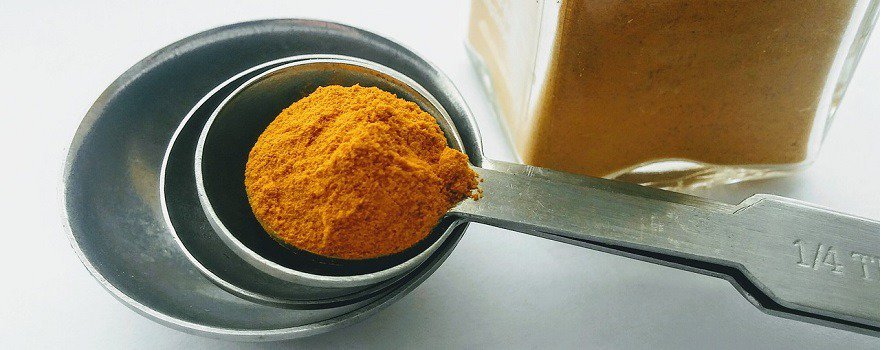The benefits of turmeric
A spice full of virtues
Foundational in Indian gastronomy and traditional medicine, this yellow-orange spice has many virtues. Turmeric is a beige rhizome about the size of a pinkie finger, revealing its beautiful orange color when cut. It can be consumed fresh or dried in cooked dishes, as an infusion, or in natural remedies.
This root is known for its antioxidative and anti-inflammatory effects. It is one of the most potent natural anti-inflammatory agents known. As such, it is used preventively to stay healthy, boost the immune system, and remedy pain and minor ailments. Turmeric is notably good for treating digestive disorders, improving biliary function, and treating inflammatory diseases. It is advised to relieve joint pain such as osteoarthritis and arthritis. It even has anti-cancer properties due to its antioxidant components, particularly curcumin.
Also read Our advice on buying turmeric capsules
Different consumption patterns according to countries
Turmeric is traditionally consumed in Asia, particularly in India, where this spice is central. This daily consumption may explain why Indians have a particularly low rate of digestive system cancers compared to Westerners.

In the West, turmeric is consumed as a superfood: it can be added to dishes as a spice or taken as a supplement. It can be consumed fresh by cutting, dried as a powder, or in capsule form. It is recommended to consume 3 grams of powder per day or, in capsules (dry extract), 1.5 grams per day.
Could turmeric be dangerous?
Sprinkling turmeric on your dishes might be useless
The recommended dosage of turmeric for therapeutic effect is quite substantial: one should consume more than one teaspoon per day. Furthermore, turmeric is quite volatile and the body absorbs it with difficulty. It should be combined with pepper (or rather its active substance, piperine) to make its effects truly effective.

Additionally, it is recommended to consume turmeric with oil to “capture” its active substances in the body. Fully benefiting from turmeric’s therapeutic effects is therefore quite challenging: simply sprinkling a few pinches on dishes occasionally is not enough to stay healthy (but it does allow them to turn yellow!)
Lire aussi l Où trouver du curcuma en gélule ?
Side effects of turmeric and contraindications
When taken in small doses, turmeric poses no danger to the body. However, when consumed in high doses, turmeric can have effects on the digestive system. A body unaccustomed to daily turmeric consumption may experience stomach burns, bloating, or even vomiting.
As a spice, turmeric is not dangerous to health. It’s when taken in capsule or extract form that it might be overdosed.
While turmeric is excellent for relieving painful periods or excessive bleeding, it is not recommended in supplements for pregnant or breastfeeding women. In high doses, it could cause bleeding or contractions.
Turmeric is contraindicated in cases of gallstones, liver disease, and stomach ulcers. It is also advised against consuming it in high doses if scheduled for surgery in the next 15 days, as turmeric may increase blood flow.

One may also develop an allergy to turmeric, which manifests as dry mouth and nausea. Therefore, it is advised, for the first intake, to take only a small pinch, especially for those already allergic to other foods.
Interactions of turmeric
The effects of turmeric can be enhanced with the consumption of certain herbs or medications. To better assimilate turmeric, it is recommended to consume it in interaction with pepper. Consuming turmeric with ginger or cinnamon is also suggested to multiply its anti-inflammatory effects.
However, it is advised against consuming turmeric with certain medications:
- Anticoagulants: aspirin, warfarin (Coumadin), vitamin K antagonists: turmeric already has an anticoagulant effect that may enhance the properties of the medication.
- Antacids: used for individuals suffering from gastric acidity, gastroesophageal reflux. Turmeric could negate the effects of the medication or even increase acidic secretions.
- Antidiabetics: since turmeric already has antidiabetic effects, it’s not recommended to consume it in large doses if you are undergoing diabetes treatment.
- Anti-inflammatories: similarly, turmeric should be avoided if you are already taking anti-inflammatory medications. However, some studies suggest that turmeric could be more effective than non-steroidal anti-inflammatory drugs, without harmful side effects for the body.
Therefore, if you are taking this type of medication, it is advised to consult a doctor before starting a turmeric regimen. However, a few pinches of powder in the food won’t cause any problems!
Expert opinions on turmeric consumption
Thus, turmeric is not dangerous if consumed occasionally or if you follow the dosages prescribed by a professional. Occasional consumption of turmeric will not have any harmful effects on the body: at worst, it will be useless because it’s not absorbed by the body.
If you wish to follow a turmeric-based regimen to relieve digestive disorders or joint pain, it is recommended to consult a specialist. Overdosing on turmeric may lead to opposite effects than desired.
However, this type of natural remedy is less likely to have side effects than drug treatment.



